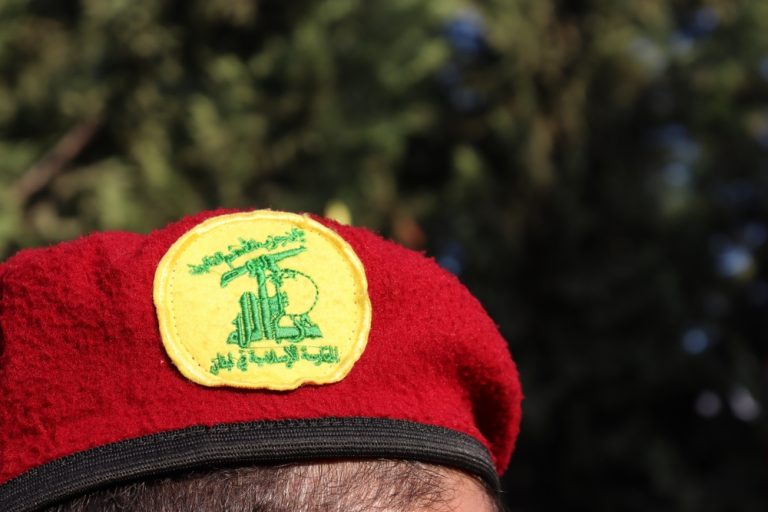Hezbollah has appointed Shiite cleric Naim Qassem as its new leader, following the death of former Secretary-General Hassan Nasrallah in an Israeli airstrike. The 71-year-old Qassem, a founding member of Hezbollah, now assumes control of an organization that has been significantly weakened by recent Israeli strikes. His appointment marks a new chapter for the Iran-backed group, as it faces mounting challenges in southern Lebanon amid escalating Israeli military action.
Hezbollah’s Leadership Transition
Hezbollah’s Senior Council selected Qassem as the group’s new secretary-general on Tuesday. A statement from Hezbollah’s media office emphasized Qassem’s commitment to “Mohammed’s authentic Islam” and the group’s guiding principles. Having served as Hezbollah’s deputy secretary-general since 1991, Qassem is a familiar figure within the organization and was considered the natural choice for leadership. Mohanad Hage Ali, deputy director for research at the Malcolm H. Kerr Carnegie Middle East Center, described Qassem as “a no-brainer choice for the organization” due to his established position within Hezbollah’s hierarchy.
Qassem’s predecessor, Hassan Nasrallah, was killed in an Israeli airstrike over a month ago. Nasrallah’s death, along with recent assassinations of other top Hezbollah figures, has left the group’s leadership shaken, limiting its available options. Hashem Safieddine, regarded as a stronger contender for leadership, was also killed in an Israeli attack, underscoring the intensity of Israel’s ongoing military campaign against Hezbollah’s ranks.
A History Rooted in Resistance
Born in 1953 in Kfar Kila, southern Lebanon, Qassem has long been a key player within Hezbollah. Before joining the organization, he was active in “Harakat al Mahrumin” (the Movement of the Dispossessed), a political group that evolved into the Shiite Amal movement, led by Lebanese parliamentary speaker Nabih Berri. Qassem, who once worked as a chemistry teacher, has consistently advocated for the “resistance” against Israeli occupation and has been under Israel’s radar for years. His 2015 book, Hezbollah: The Story from Within, offered insights into Hezbollah’s evolution as both a political and resistance force.
Despite his media presence, Qassem is seen as more distant from the Lebanese public compared to Nasrallah, who was widely regarded as a voice for the impoverished. As Hage Ali noted, “Qassem represented the lower middle class,” whereas Nasrallah’s background aligned him with Lebanon’s underprivileged communities, potentially impacting Qassem’s ability to command the same level of popular support.
Rising Tensions and Strategic Challenges
Qassem takes the helm of Hezbollah amid heightened hostilities with Israel, as Israeli forces conduct an intense campaign targeting Hezbollah’s positions in southern Lebanon. The Israeli Minister of Defense Yoav Gallant responded to Qassem’s appointment with a dismissive comment on X, writing, “Temporary appointment. Not for long,” signaling Israel’s continued targeting of Hezbollah’s leadership.
Qassem’s recent statements condemning Israel’s actions in Gaza indicate that Hezbollah’s support for Palestinian groups may intensify under his leadership. He stated that Hezbollah’s “supportive front” for Palestinians will only strengthen as “Israel increases its aggression, especially when it targets civilians.” However, analysts believe that Qassem will act more as a coordinator within Hezbollah rather than an “absolute leader.” Hage Ali suggested that Israel’s recent strikes have forced Hezbollah into a generational transition, leaving Qassem with limited room to maneuver.
Limited Leadership in a Shaken Organization
In addition to Qassem’s rise, Hezbollah faces operational challenges as Israel’s recent offensive has reduced the group’s upper ranks, leaving fewer leaders with experience and strategic influence. Qassem is likely to oversee a fractured organization, coordinating the efforts of its remaining factions rather than exerting total authority. The losses sustained in the recent attacks have led to what Hage Ali called a “generational coup,” with Israel’s targeting of top Hezbollah figures marking a significant shift in the organization’s structure.
Naim Qassem’s appointment as Hezbollah’s leader comes at a turbulent time for the group, which is grappling with the aftermath of Israel’s sustained military strikes and the loss of its longtime leader Hassan Nasrallah. As Qassem assumes leadership, he faces the task of uniting Hezbollah’s factions while navigating escalating tensions with Israel. While he brings decades of experience within the organization, his leadership may be tested as Hezbollah adapts to a rapidly changing landscape and an uncertain future.


